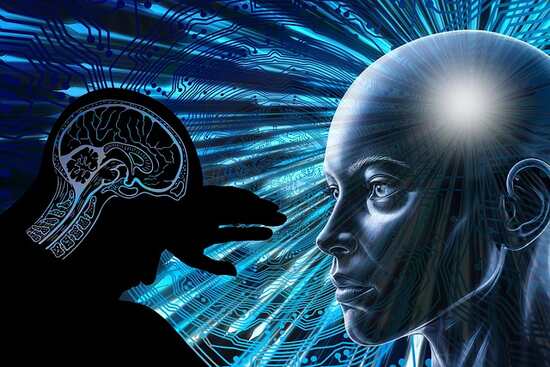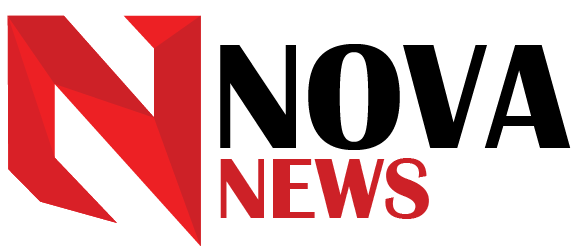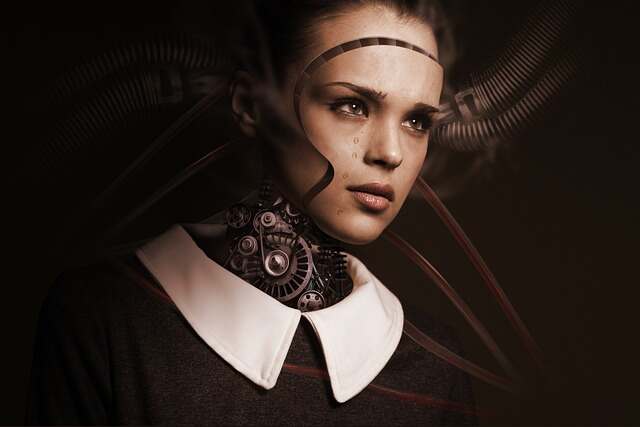Humanity Just Crossed a Line in the Sand
This week, an AI shockwave shook the tech world. A system smarter, faster, and more human than ever went live—and it might just rewrite how we work, live, and think. If you aren’t paying attention yet, you will be.
The AI Shockwave Explained: Why This Matters Now
First of all, the new model, codenamed “Echelon,” is different. It doesn’t just answer. It thinks, reasons, and plans like a human brain—but faster.
- Capable of passing bar exams, composing original symphonies, and solving complex scientific problems
- Outpaces GPT-4 and Gemini Ultra by 3x on benchmark tests
- Already deployed in finance, education, medicine, cybersecurity, and national defense
Tech leaders are calling it the “iPhone moment” of artificial intelligence. In addition, this is more than a tool—it’s a paradigm shift in human evolution.
“This isn’t just a new assistant. It’s a new kind of intelligence. One that can reshape institutions, economies, and power structures,” says Dr. Olivia Herrera, MIT AI Ethics Fellow.
The Human Reaction: Excitement, Fear, and Everything Between
Lina, a freelance graphic designer, described her reaction: “My stomach dropped. I realized my whole job could be automated.”
Others are thrilled. James, a data analyst, said: “It’s like I got promoted overnight. My AI assistant now does 60% of my work.”
The divide is growing. Some see freedom from mundane tasks. Others fear being left behind in a future they didn’t ask for.
Expert Insight: What the Top Minds Are Saying
“This tech could double global productivity or deepen inequality faster than any previous revolution,” warns Dr. Samuel Chen, economist at FutureLab Global.
Also, according to Stanford’s 2025 Policy Insight Report:
- 63% of white-collar roles face automation within two years
- 77% of Fortune 100 companies are integrating autonomous AI into operations
- Ethical frameworks remain several years behind deployment speed
Dr. Chen adds, “Our biggest risk isn’t AI—it’s rolling it out without a moral compass.”
A Deeper Look: What’s Really at Stake in the AI Shockwave
This isn’t about gadgets. It’s about what makes us human.
- What happens when machines surpass us in every measurable way?
- Can we retain our identity, agency, and creativity in an AI-saturated world?
- Will society fragment into those who control AI—and those controlled by it?
And even deeper:
- How do we ensure fairness, ethics, and transparency?
- How do we teach future generations to thrive when everything they know is changing?
This AI shockwave is not just technical. It’s spiritual. It asks us who we are—and who we want to become.
What You Need to Know Right Now
Here’s what every reader should understand immediately:
- AI Shockwave 2025 is unfolding now—not a future theory
- These new models match or exceed human cognition in tasks like analysis, logic, and creation
- Entire industries are being disrupted or restructured at record speed
- Education systems and job markets haven’t caught up
- Regulators are behind the curve
A Brief AI History Lesson (So You’re Never in the Dark Again)
AI wasn’t born yesterday. Here’s a simplified timeline to add context:
- 1950s–1970s: AI research begins, focused on logic and problem-solving
- 1980s–1990s: Machine learning emerges
- 2000s: Data explosion + cheap computing = Deep Learning
- 2018: Transformers (e.g., BERT, GPT) revolutionize natural language understanding
- 2023–2025: Multimodal AI and autonomous agents take over complex reasoning
Now, we’re at the Echelon phase—where machines start to mirror (and outperform) general human intelligence.
🔍 The AI Shockwave In Short: Why It Matters More Than Ever Today

Moreover, this week’s breakthrough didn’t just improve artificial intelligence—it redefined what it means to think.
Also, the new AI system, internally known as Echelon, doesn’t simply respond with preprogrammed answers. It analyzes, plans, and reasons with a level of clarity that mirrors human thought. But here’s the kicker—it does it faster than any human could.
Unlike previous models that followed prompts, also Echelon identifies intent, connects abstract ideas, and adapts to new information in real time. It doesn’t just solve problems. In addition, It understands context, detects emotion, and adjusts its behavior like a living brain.
And it’s already proving its potential.
- It passed advanced exams in law, medicine, and engineering—with minimal training.
- It composed complex, emotionally resonant music across multiple genres.
- It solved scientific puzzles researchers have struggled with for years.
- It now helps experts in finance, cybersecurity, and national security analyze threats faster than traditional teams.
In raw speed and reasoning, Echelon outperforms models like GPT-4 and Gemini Ultra by over 300% on core logic and problem-solving benchmarks.
First of all, the world’s top tech innovators aren’t exaggerating when they call this the “iPhone moment” of artificial intelligence. But this isn’t just a new product launch—it’s a historical pivot. Just as smartphones changed how we communicate, this AI shift could alter how humans create, decide, lead, and live.
Dr. Olivia Herrera, a leading AI ethics researcher at MIT, summed it up best:
“Echelon isn’t just another tool. It represents a new kind of intelligence.The new Era of AI. One that can influence economies, challenge institutions, and redefine who holds power in the modern world.”
In other words, this isn’t an upgrade. It’s a reboot of the entire system.
Recommended by Nova News:
Five Actionable Steps to Ride the AI Shockwave, Not Get Crushed By It
- Subscribe to Trusted Tech Briefings
- Start with MIT Tech Review, OpenAI Updates, or The Decoder
- Upskill Rapidly in AI Literacy
- Learn prompt engineering, critical thinking, and ethical risk analysis
- Test AI Tools Yourself
- Use ChatGPT, Claude, and Perplexity to automate tasks and get more done
- Get Your Employer on Board
- Push for team AI-readiness: training, testing, and internal guidelines
- Join the Public Conversation
- Share informed views on AI governance, inclusion, and future labor policies
Stay Ahead of the Curve
In addition this AI shockwave will define this decade—economically, politically, spiritually. But you don’t have to just watch it happen.
You can shape it.
📬 Subscribe to our newsletter for weekly insights, tools, and early warnings 🔗 Share this post to spark conversations that matter 💬 Comment below: What excites or scares you most about this AI future?
Stay smart. Be human. Stay ahead.

